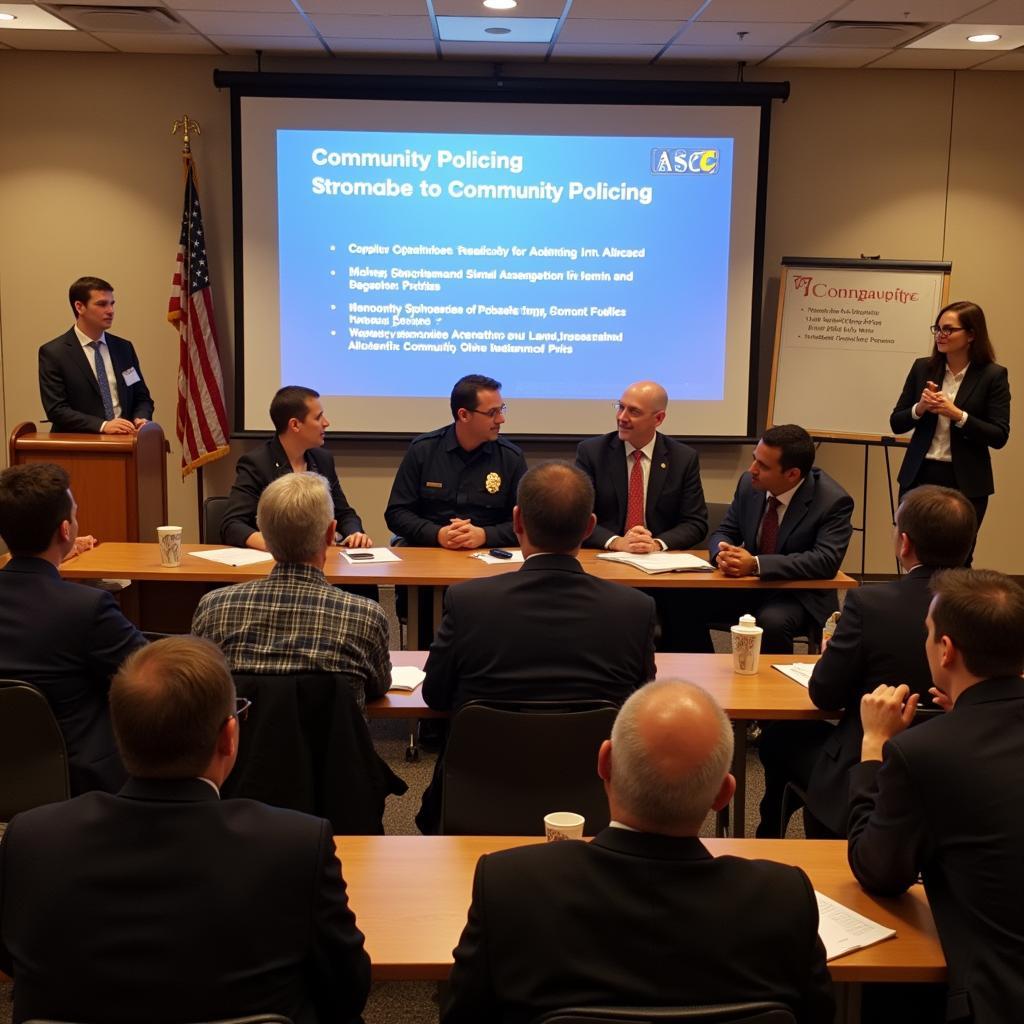The American Society Of Criminology Annual Meeting brings together experts and practitioners to discuss critical issues impacting peace and security. This gathering serves as a crucial platform for fostering dialogue, sharing research, and promoting collaborative efforts to address crime and its societal consequences.
Exploring the Impact of the American Society of Criminology Annual Meeting
The annual meeting offers a unique opportunity to delve into the complex relationship between criminology and peacebuilding. By examining the root causes of crime, exploring effective prevention strategies, and promoting restorative justice practices, attendees contribute to creating a more just and peaceful world. The exchange of ideas and best practices at the meeting facilitates the development of innovative solutions to address pressing global challenges.
Understanding the societal impact of crime is essential for building sustainable peace. The American Society of Criminology Annual Meeting provides a forum for researchers, policymakers, and community leaders to collaborate and develop strategies for preventing violence and promoting social harmony. This collaborative approach is crucial for creating communities where everyone feels safe and valued.
Sessions at the meeting often focus on topics such as restorative justice, community policing, and crime prevention programs. These discussions provide valuable insights into how to build stronger, more resilient communities. The meeting fosters a sense of shared responsibility and encourages participants to take an active role in promoting peace.
Key Themes and Discussions at the ASCC Annual Meeting
The annual meeting covers a wide range of topics relevant to criminology and its intersection with peacebuilding. Key themes often include:
- Restorative Justice: Exploring alternative approaches to traditional justice systems that prioritize healing and reconciliation.
- Community Policing: Examining strategies for building trust and collaboration between law enforcement and the communities they serve.
- Crime Prevention: Discussing evidence-based programs and initiatives aimed at reducing crime rates and promoting public safety.
- Victimology: Understanding the experiences and needs of victims of crime and developing effective support systems.
- International Criminology: Exploring global crime trends and fostering international cooperation in crime prevention and control.
 Community Policing Panel Discussion at ASCC Annual Meeting
Community Policing Panel Discussion at ASCC Annual Meeting
Dr. Emily Carter, Professor of Criminology at the University of California, Berkeley, highlights the importance of this event: “The ASCC Annual Meeting is a vital platform for sharing cutting-edge research and fostering collaboration among criminologists. It’s a space where we can learn from each other and collectively work towards creating a safer and more just world.”
The Role of Technology in Modern Criminology
The increasing use of technology in criminal investigations and crime prevention is a recurring theme at the annual meeting. Discussions focus on how technology can be used effectively and ethically to enhance public safety. These discussions often explore the challenges and opportunities presented by new technologies in addressing crime.
Cybercrime, digital forensics, and the use of artificial intelligence in law enforcement are some of the key areas explored. The meeting encourages critical discussions about the ethical implications of using technology in criminal justice.
Professor David Miller, a leading expert in digital forensics at Georgetown University, emphasizes the significance of this topic: “The intersection of technology and criminology is rapidly evolving. The ASCC Annual Meeting provides a crucial forum for staying abreast of these advancements and exploring their impact on crime and justice.”
Conclusion
The American Society of Criminology Annual Meeting plays a vital role in advancing the field of criminology and promoting peace and understanding. By bringing together diverse perspectives and fostering collaboration, the meeting contributes to the development of effective strategies for addressing crime and building a more peaceful future.
FAQ
- What is the American Society of Criminology?
- When and where is the annual meeting held?
- Who can attend the annual meeting?
- How can I submit a proposal to present at the meeting?
- What are the key themes typically addressed at the meeting?
- Are there scholarships or grants available to attend the meeting?
- How can I become a member of the American Society of Criminology?
For further information or assistance, please contact us: Phone: 02043854663, Email: [email protected] or visit our address: Khu 34, Bac Giang, 260000, Vietnam. We have a 24/7 customer support team.